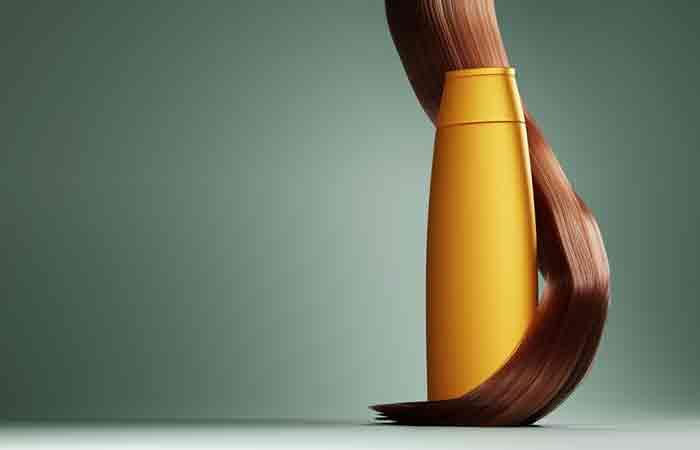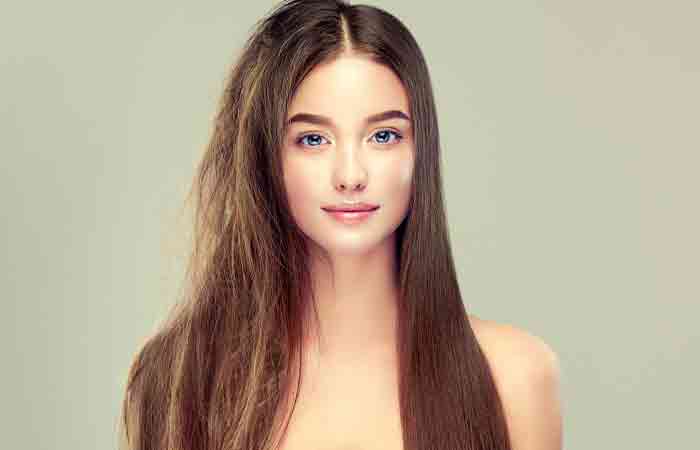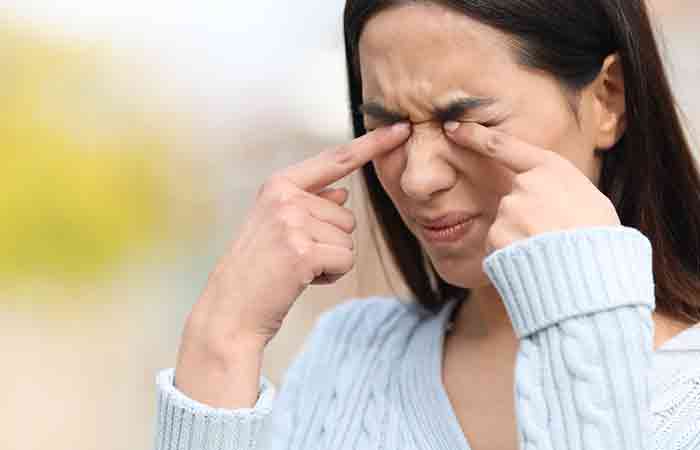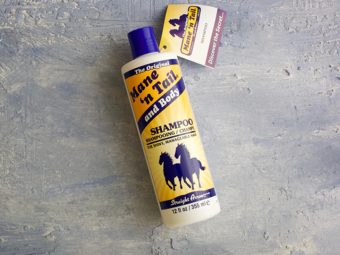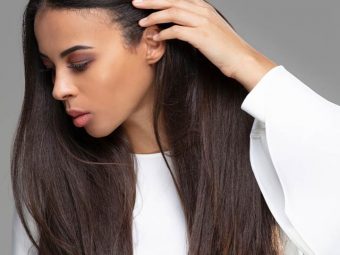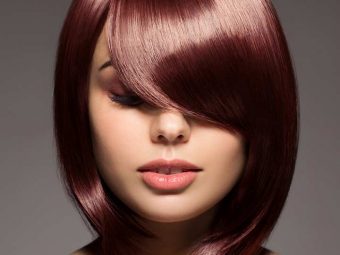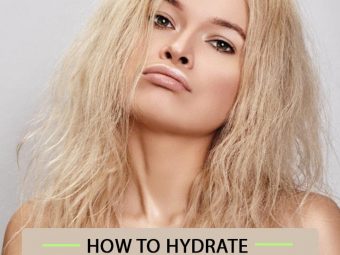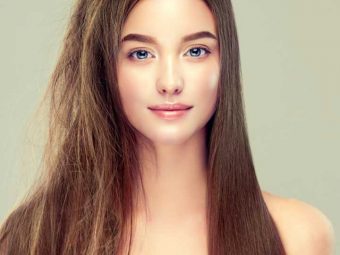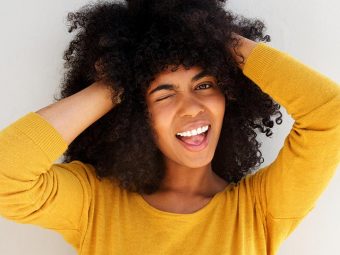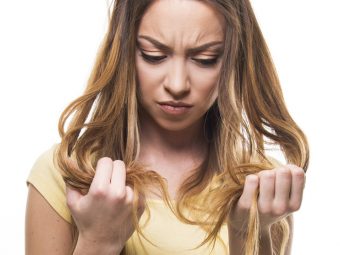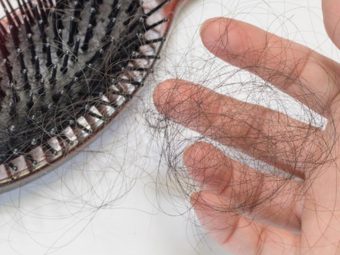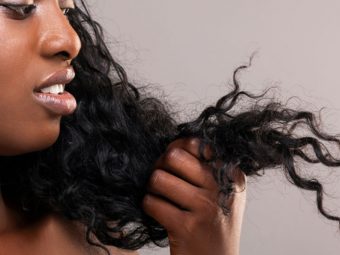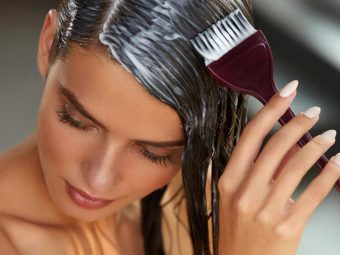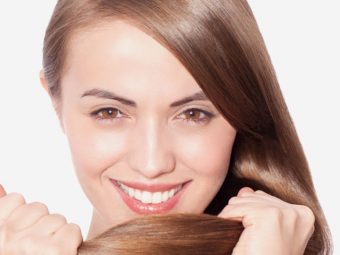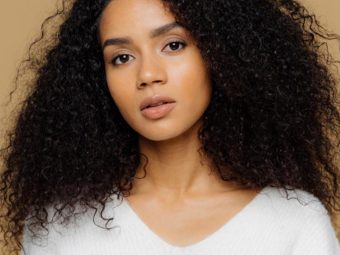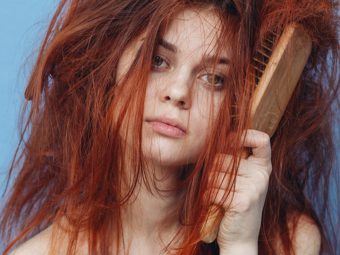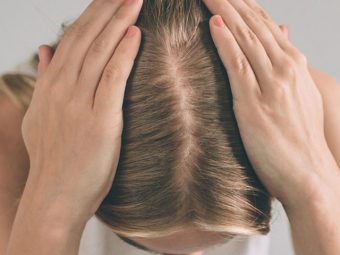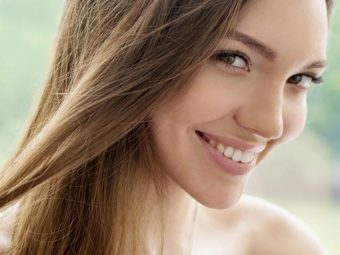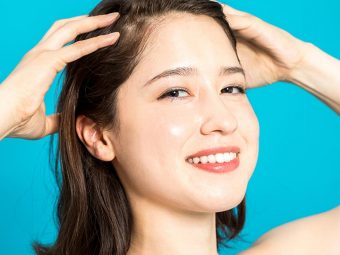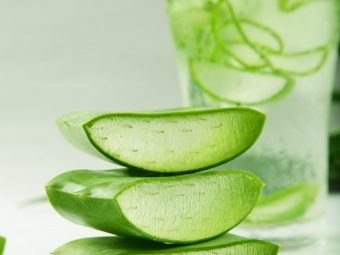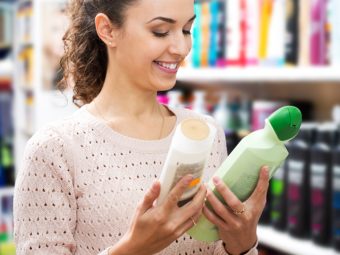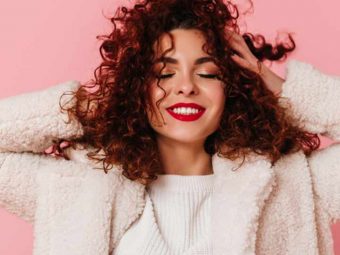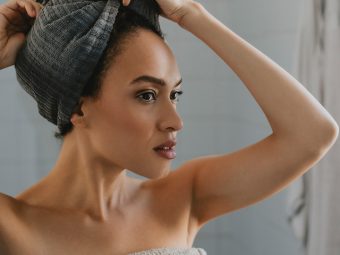How To Use Hydrolyzed Keratin And Its Benefits
Believe it or not, this protein molecule can transform your hair quality in the best ways.
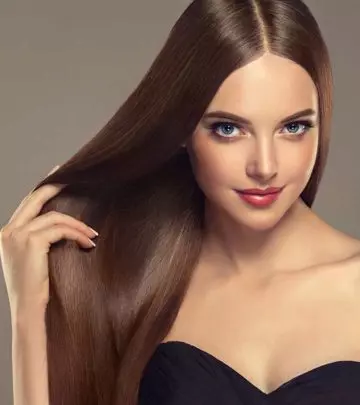
Image: Shutterstock
Keratin is a protein that makes up our hair, skin, and nails. Unfortunately, constant exposure to heat styling equipment and harsh chemicals can damage it. Hydrolyzed keratin is a compound that can reverse the damage done to hair. It is found in many hair care products and helps rejuvenate, strengthen, and moisturize the hair. In addition, this protein increases the smoothness of the hair.
In this article, we try to understand what hydrolyzed keratin is, how it benefits the hair, and much more. Continue reading.
In This Article
What Is Hydrolyzed Keratin?
Hydrolyzed keratin is extracted from the nails, wools, and horns of animals. It is a large protein molecule and is broken down or “hydrolyzed” into smaller molecules through enzymatic hydrolysis. The smaller or hydrolyzed molecules have lower molecular weight and penetrate the hair shafts and strengthen the hair structure. It has a similar amino acid structure as the keratin produced naturally in humans. It works similarly to a peptide or collagen treatment for the skin. Read on to know how beneficial hydrolyzed keratin can be for hair.
Benefits Of Hydrolyzed Protein For Hair
- Research shows that hydrolyzed protein can repair and condition damaged hair. These protein hydrolysates strengthen hair fibers and reduce hair breakage (1).
- Protein hydrolysates are often added to hair coloring products for even color absorption (1).
- Hydrolyzed protein protects the hair from the damaging effects of permanent bleaching, waving, and straightening products (1).
- It improves the texture and natural structure of the hair and forms a protective coating to shield the strands (1).
- It boosts hair moisture and elasticity and protects it from heat and photo-damage (1).
- It retains water content in the cortexi XThe thickest layer of the hair shaft that lies between the hair cuticle and medulla and imparts color to the hair. by bonding with residual amino acids produced by hair proteins (2).
- Research shows that hydrolyzed keratin can help stimulate hair growth (3).
- Protein hydrolysates protect the hair from chemical and environmental aggressors to prevent hair damage (4).
- It also helps seal hair cuticles (1). This minimizes frizz and prevents flyaways. The amino acids from hydrolyzed proteins neutralize the negative electrical charge on the hair to eliminate frizz and friction (4).
- Hydrolyzed keratin has a similar amino acid structure to that of natural human hair. It is known to improve the tensile strengthi XThe maximum stress that the hair can withstand when being pulled and stretched before breaking from the scalp. of damaged hair (2), (5).
 Quick Tip
Quick TipHydrolyzed keratin is beneficial for all hair types, especially curly and kinky hair. Scroll down to find out why.
Is Hydrolyzed Keratin Good For Curly Hair?

Yes. This is because curly and kinky hair is porous and brittle and has a weak hair structure. Hydrolyzed keratin can easily penetrate curly hair and improve its protein content to enhance hair strength and structure. It may help enhance curl definition, so it is often suggested to be used in DIY hair masks and products.
Curly hair is more prone to damage and dryness, and hydrolyzed keratin can help minimize these issues. Research shows that it makes curly hair more manageable and frizz-free (6). It also improves hair color and shine.
 Did You Know?
Did You Know?If you want to reap all these benefits of hydrolyzed keratin, you need to use it the right way. Here are a few tips to help you use hydrolyzed keratin for your hair.
How To Use Hydrolyzed Keratin For Hair

- Hydrolyzed Keratin Hair Products: You can find many hair care products like shampoos, conditioners, hair masks, and serums containing keratin hydrolysates. Use these products regularly for hair repair and to improve the hair texture and tensile strength.
- DIY Hair Products: Add a concentration of 0.5-3% of hydrolyzed keratin to your regular shampoo, conditioner, or hair mask to condition and protect the hair.
- Deep Conditioning Treatment: You can add 0.5-3% concentration of hydrolyzed keratin to any deep conditioning treatment. Apply the product, put on a shower cap, and leave the treatment on overnight. Wash it off in the morning.
If you follow a vegan lifestyle and are wondering if hydrolyzed keratin products will fit your lifestyle, here is the answer.
Is Hydrolyzed Keratin Vegan?
Hydrolyzed keratin is not vegan. Keratin is derived from feathers, wool, nails, and other parts of animals. It cannot be sourced from vegetables and is neither vegan nor cruelty-free.
However, hydrolyzed protein can be synthesized from the amino acid extracted from soy, wheat, and corn. It is not be as effective as animal-derived keratin and may not restore the damaged hair structure (4).
If you are wondering whether hydrolyzed keratin contains formaldehyde then check out the following section!
Does Hydrolyzed Keratin Have Formaldehyde?
Traditional hydrolyzed keratin treatments available on the market are formulated with formaldehyde, a harmful chemical that is also a known carcinogen and may increase the risk of leukemia (7). Exposure to this chemical may also cause other adverse effects. It may irritate the skin, cause rash, and may even cause nausea. It is thus suggested to not use hydrolyzed keratin treatment frequently. You can also opt for organic formulas that do not contain formaldehyde and other toxic chemicals.
Now that we are aware of the harmful components present in hydrolyzed keratin, let us also have a look at a few of its possible side effects.
Side Effects Of Hydrolyzed Keratin
A study found 5% hydrolyzed keratin to be non-irritating and non-sensitizing. However, 10% of hydrolyzed keratin may irritate the skin. It may cause acute urticaria (hives, swelling, and redness) and itchy eyes (8), (9).
Perform a patch test on the neck or the wrist to avoid adverse reactions. Also, avoid overusing hydrolyzed keratin as it may weigh the hair down and make it greasy, dry, and stiff.
Infographic: A Complete Guide To Hydrolyzed Keratin For Hair
While keratin is an important protein found in your hair, excessive heat styling may cause damage to it and your hair. The good news is you can use hair care products with hydrolyzed keratin to repair damaged hair and give it the much-needed hydration. Check out the infographic below to understand the benefits of hydrolyzed keratin and how to add it to your hair care routine.

Illustration: StyleCraze Design Team
Hydrolyzed keratin is good for hair because it promotes hair growth, repairs damage, and enhances the texture of the hair. It also improves hair hydration and elasticity while shielding it from high temperatures and photodamagei XThe cellular DNA changes that occur due to prolonged unprotected skin exposure to harmful UV rays, resulting in freckles, pigmentation and roughness.. .
Damage and dryness are more common in curly hair, and hydrolyzed keratin can help alleviate these problems. It makes curly hair more manageable and frizz-free. It also boosts the color and sheen of your hair. However, use it with caution as it can trigger allergic reactions, and overuse can have the reverse reaction. Consult a doctor and perform a patch test before using hydrolyzed keratin.
Frequently Asked Questions
Can hydrolyzed keratin cause baldness?
Hydrolyzed keratin does not cause balding. It improves hair health and appearance.
Is hydrolyzed keratin good for low-porosity hair?
Yes. Hydrolyzed wheat protein is recommended for low-porosity hair as it does not cause excess build-up or weigh your hair down.
Is hydrolyzed silk keratin?
Hydrolyzed silk is the protein derived from silkworms and is the same as hydrolyzed keratin.
Key Takeaways
- Hydrolyzed keratin may help repair and condition damaged hair, improving its strength and texture.
- It is beneficial for porous and brittle curly hair. It reduces damage, enhances curl definition, and manages frizz.
- Incorporate hydrolyzed keratin into your hair care routine through products like shampoos, conditioners, and masks.
- It is not vegan as it is sourced from animal parts and it is recommended to perform a patch test before using it.
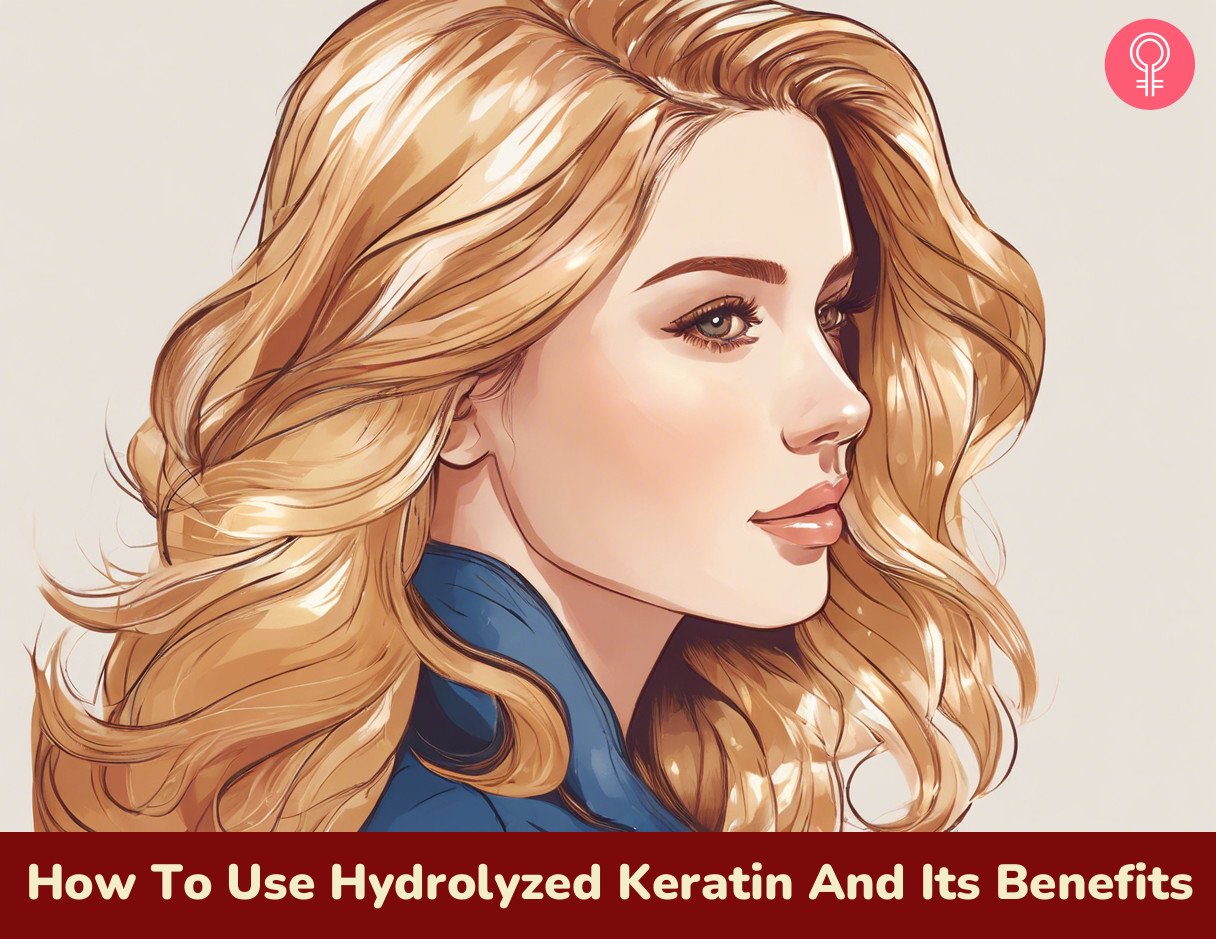
Image: Stable Diffusion/StyleCraze Design Team
References
Articles on StyleCraze are backed by verified information from peer-reviewed and academic research papers, reputed organizations, research institutions, and medical associations to ensure accuracy and relevance. Read our editorial policy to learn more.
- Feather keratin hydrolysates obtained from microbial keratinases: effect on hair fiber
https://bmcbiotechnol.biomedcentral.com/counter/pdf/10.1186/1472-6750-13-15.pdf - An ex vivo Comparison of the Tensile-Strengthening Properties of Protein Derivatives on Damaged Hair https://ualresearchonline.arts.ac.uk/id/eprint/10349/1/IFSCC%20Paper_Daniels_0316.pdf
- Application Properties Of Shampoos Containing Hydrolyzed Elastin And Hydrolyzed Keratin https://www.researchgate.net/publication/323868792_APPLICATION_PROPERTIES_OF_SHAMPOOS_CONTAINING_HYDROLYZED_ELASTIN_AND_HYDROLYZED_KERATIN
- Hair Cosmetics: An Overview
https://www.ncbi.nlm.nih.gov/pmc/articles/PMC4387693/ - Health improvement of human hair and their reshaping using recombinant keratin K31
https://www.ncbi.nlm.nih.gov/pmc/articles/PMC6218806/ - Brazilian keratin hair treatment: A review https://www.researchgate.net/publication/237001559_Brazilian_keratin_hair_treatment_A_review
- Formaldehyde exposure and leukemia risk: a comprehensive review and network-based toxicogenomic approach https://www.ncbi.nlm.nih.gov/pmc/articles/PMC8042688/
- Contact urticaria from protein hydrolysates in hair conditioners
https://pubmed.ncbi.nlm.nih.gov/9860241/ - Safety Assessment of Keratin and Keratin-Derived Ingredients as Used in Cosmetics
http://www.cir-safety.org/sites/default/files/kerati092015slr%20.pdf





